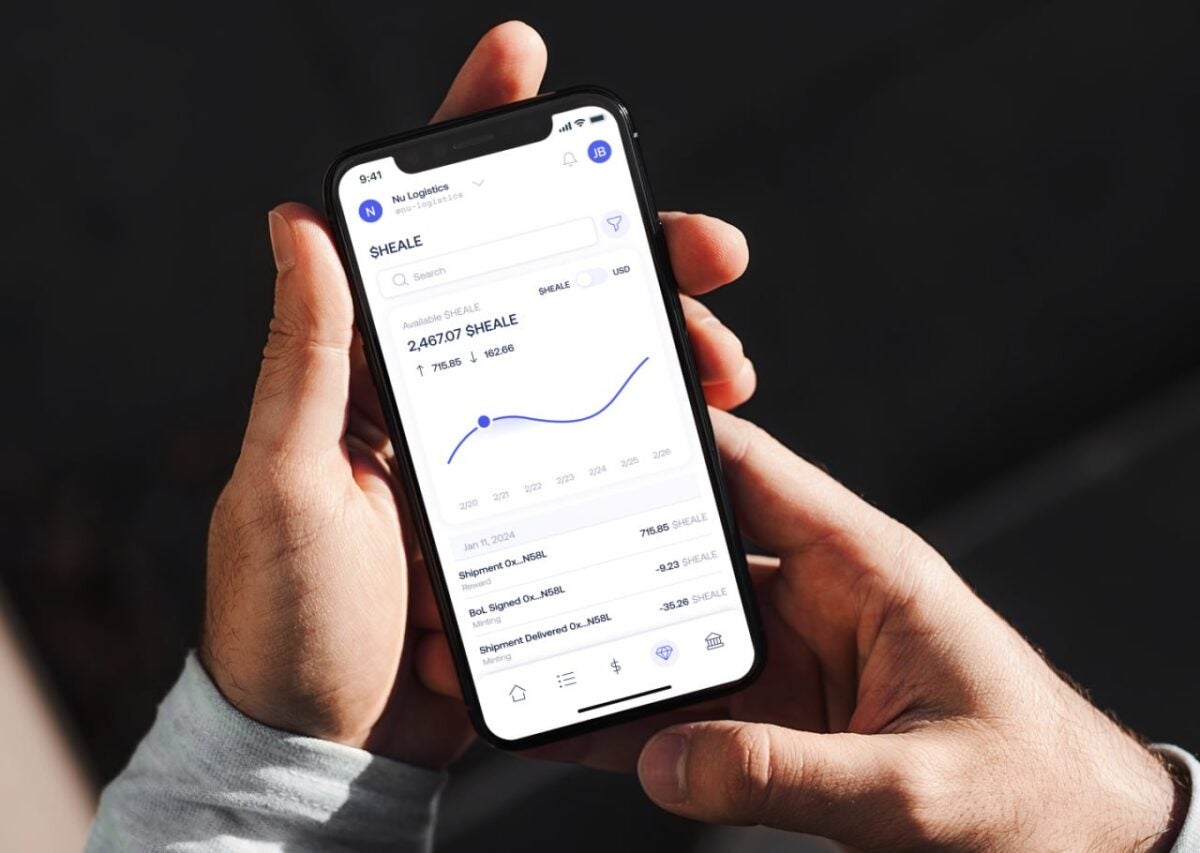Heale Labs announced Thursday it has received a seed investment from the supply chain technology fund Venture 53 as the company continues its work to standardize industry data. Terms of the funding were not disclosed.
“Heale solves some of the thorniest issues in supply chain and logistics. With unparalleled data accuracy and real-time connectivity, we’re introducing a new era of efficiency, reliability and profitability in global supply chains,” said founder Todd Haselhorst.
To understand what the company, whose name stands for Hyper Enabled Autonomous Logistics Ecosystem Labs, is doing, you must first understand what the term “tokenization” means in the context of logistics.
Tokenization is a way to transform text into a format understandable to machines while preserving its contextual significance. This process segments text into tokens, facilitating algorithmic analysis for pattern recognition. That recognition enables machines to interpret and react to human input effectively.
The key to tokenizing data is avoiding ambiguity and the use of different languages. Heale’s platform encourages users to share complete and accurate shipment data to avoid ambiguity and confusion.
Users integrate a digital wallet into their existing management systems. When a shipment is added to the Heale network, data is collected and added to the master record. After completion, users may qualify for rewards based on their actions and the quality of shared data, distributed through the digital wallet.

The incentive structure encourages best practices during shipments, rewarding data providers for cleanliness, timely bill payment and use of electronic bills of lading. This approach aims to increase profitability by reducing errors, theft, fraud and waste in the shipment life cycle.
“We can apply [tokenization] to logistics and items like a box, a carton, a pallet, a truck or your warehouse,” Haselhorst said in a recent interview with technology provider Optym. “That token or that unique identifier represents that thing digitally. So when you want to find an available space on a truck, across the whole [logistics] network, you can reference that unique identifier. The same is true for an item or a box or a pallet, right? … They can’t be replicated and they can’t be duplicated, so it eliminates the ability for people to fraudulently create these assets.
“When a carrier posts its capacity on a load board, you have brokers and shippers that are calling on that capacity, trying to match those two together. Well, if I as a carrier got [the truck] covered, that [truck] is still sitting on all these other load boards. How many times are brokers and shippers still calling on that capacity that has been long gone? So by tokenizing it as soon as you remove it, you remove it from all other locations.”
Heale’s model could drive necessary changes to address data quality and security concerns, potentially revolutionizing the industry. By resolving foundational data issues, it paves the way for advanced technologies like AI to optimize operations.
“Web3 and AI have a meaningful role in the future of logistics,” said Pat Martin, partner at Venture 53. “Heale is paving the way for this future where seamless, transparent and efficient operations are standard. The team shares our vision for the future of the supply chain ecosystem, which is why we invested.”
The company has integration pilots planned with freight brokers and transportation managing systems in Q3.
Flock reports layoffs, path to profitability
Uber Freight surpasses $18B in freight under management worldwide







